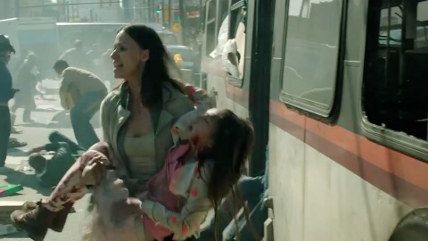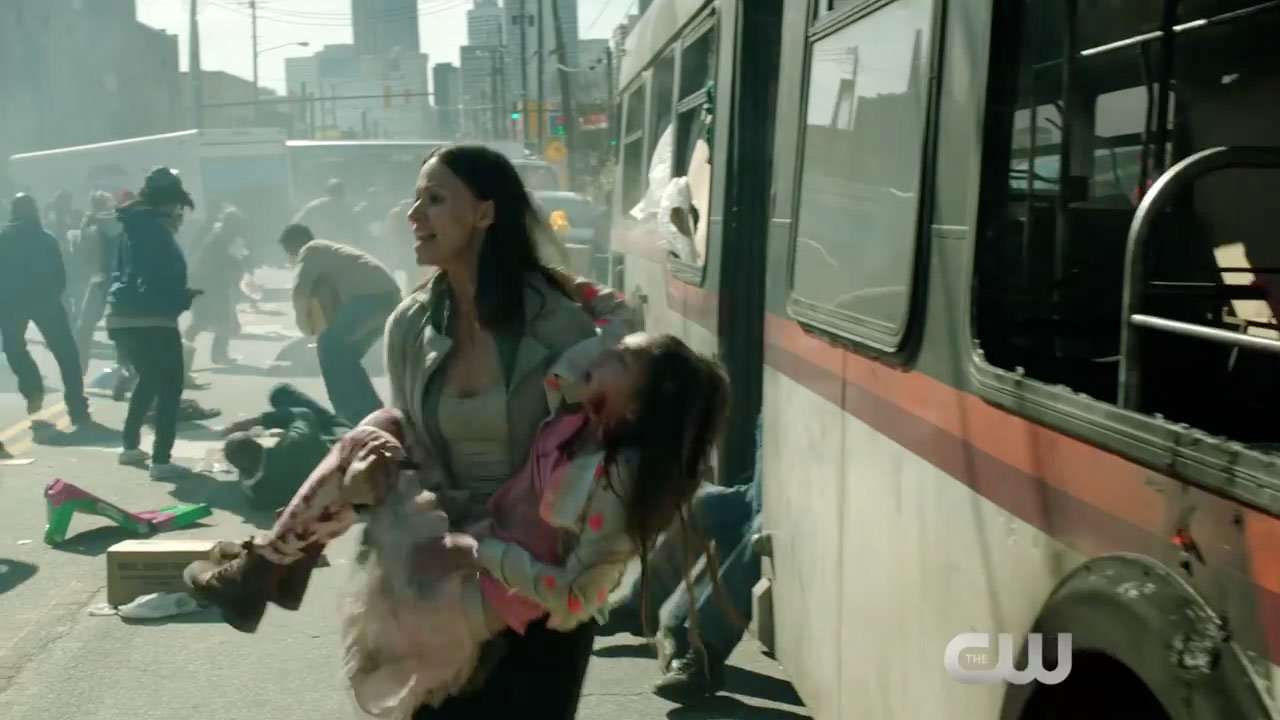Containment Offers No Cure to a Plague of Apocalyptic Sci-Fi Fantasies
New CW show boldly goes where many have gone before.


Containment. The CW. Tuesday, April 19, 9 p.m.
Guess what? You've probably already seen CW's plague-thriller Containment, possibly in 2011 when Steven Soderbergh called it Contagion, or maybe in 1995 when Wolfgang Petersen called it Outbreak, or even in 1973 when George Romero called it The Crazies.
Happily for The CW, to its teenybopper audience these artifacts of a pre-Snapchat world are no more accessible than cuneiform or Sanskrit, and Containment is likely to be a hit, not to mention a shoo-in winner of the Emmy for Most Prodigious Use of Viscous Bodily Fluids.
And, what the hell, you might as well go ahead and join the Pepsi generation yourself. However derivative Containment may be, it attains a certain creepy power as it rolls along its yuckily apocalyptic way, and it's a useful reminder that the fear of biochemical warfare is more than just a political cudgel for Washington politicians competing to see who can come up with the most egregious policy on Syria.
Adapted from the Belgian TV series Cordon by CW vets Julie Plec (The Vampire Diaries) and David Nutter (Arrow), Containment is set in Atlanta, where a mysterious epidemic of a hemorrhagic variant of avian flu has just erupted.
Clueless as to its cause (favorite theory: a Syrian biowar attack) or cure, terrified by its 100 percent mortality rate, the Center for Disease Control seals off a big chunk of the city, creating family schisms –most notably the one between Lex Carnahan (British TV actor David Gyasi), the major coordinating the police response, who is outside the wall, and his techie girlfriend Jana (Christina Marie Moses, How We Met), who is inside.
Much of what follows is predictable, if not uninteresting. The interior of the containment area quickly devolves into a hellish landscape of anarchic street gangs and plundering Randians chanting "Supply and demand!" as they charge $5 for a box of macaroni and cheese. Federal health bureaucrats, in the eternal way of suddenly-empowered nerds, go so full-frontal fascist that even the cops are appalled. ("The fact that I'm here should have you worried," replies one CDC bureaucrat to a skeptical cop. "I don't get called unless things get bad.")
But there are also a couple of clever new wrinkles, particularly the inevitable role of social media. The containment is only a couple of hours old when trapped journalists launch insidetheperimeter.com, replete with video of police atrocities, scabrous (well, maybe) conspiracy theories about the origin of the virus, and even escape routes. And in an interview with Carnahan, they expose the grim utilitarian calculation of the cordon sanitaire: "What happens when someone tries to leave the cordon, major? Do you shoot him?" The answer will soon be all too apparent.
Social breakdown in the face of microbiologic banditry is not exactly new television territory these days, what with Walking Dead spinoffs multiplying like Tribbles. Yet for all the intensity of the Walking Dead shows, Containment has its own uniquely disquieting edge: Brain-eating zombies remain a hobgloblin of Hollywood, but government-brewed anthrax and brucellosis are excruciatingly real. And in terms of the all-important gross-out quotient, zombies got nothin' on Containment. Autopsy-room scenes, especially, are not for the gag-reflex-impaired.
Containment's cast, which also includes Chris Wood (The Vampire Diaries) as an overwhelmed street cop and Claudia Black (Farscape) as an icy federal health commissar, is generally workmanlike. Gyasi, who plays the police commander, offers a good deal more than that with his complex portrayal of a man who paradoxically projects increasing strength to the public even as his doubts about what he's doing grow. "We have to trust the doctors," he remonstrates with other cops, much as Frankenstein's monster must have said to his bride.
